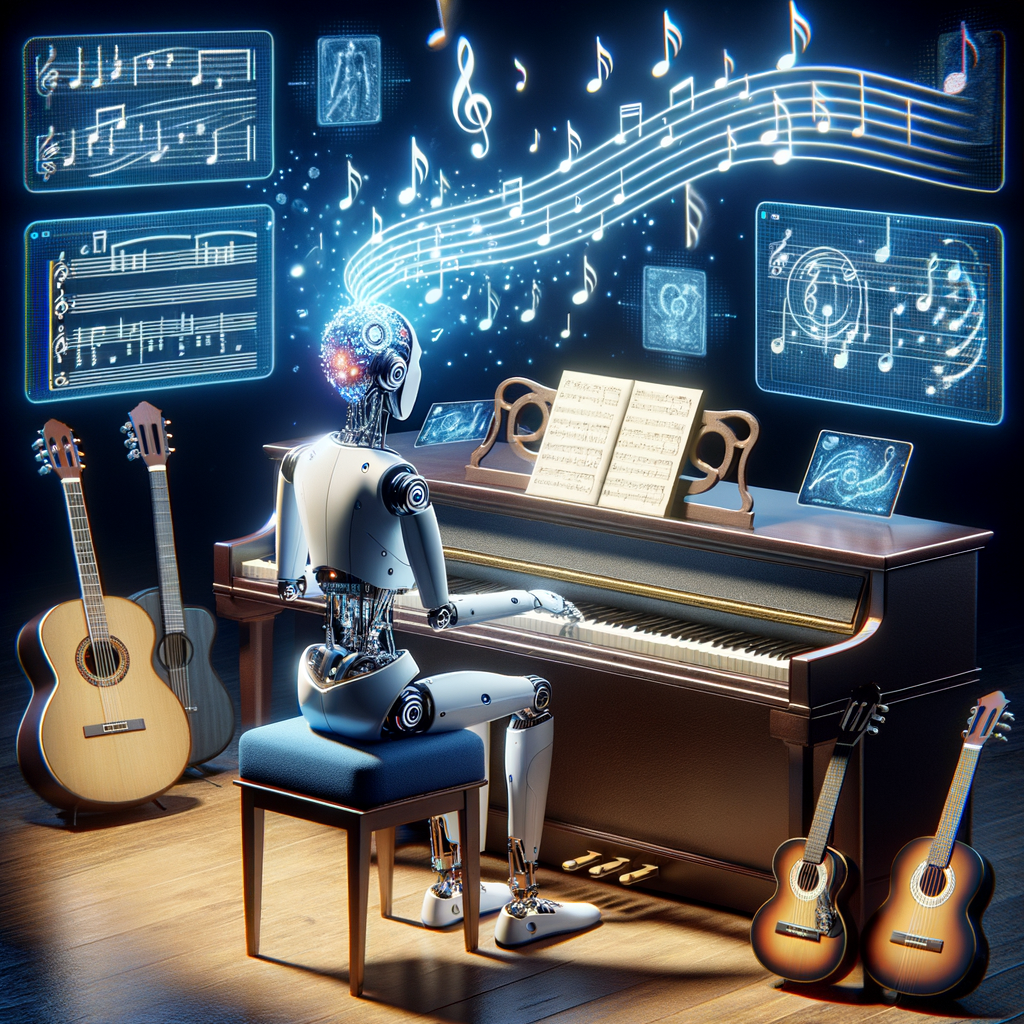Can Artificial Intelligence Produce High-Quality Music?”

Some speculate about the potential of artificial intelligence (AI) to create compelling music. They argue that while music traditionally emerges from human creativity and emotion, AI’s capacity in these domains remains limited. Nonetheless, proponents of AI-generated music highlight its ability to discern intricate patterns and trends within vast musical datasets, potentially uncovering nuances that elude human perception. Moreover, AI can innovate by reinterpreting existing musical elements in novel combinations. While AI may not replicate the depth of human emotion, it could produce original compositions that captivate listeners. Ultimately, only time will reveal AI’s true potential in the realm of music creation.
Yet, the notion that AI-generated music inherently surpasses human-made music is contentious. Assessing music quality is inherently subjective, contingent upon individual tastes. Objective criteria for musical excellence are elusive, making it challenging to determine whether AI-generated music is superior to human creations. Both AI and humans are susceptible to errors, undermining attempts to distinguish their outputs based solely on creator identity.
While music often evokes joy and inspiration, not all musicians exhibit equal skill. Some performers, regrettably, produce subpar music that fails to resonate positively with audiences. While supporting emerging talent is crucial, there’s a threshold where artistic merit must be acknowledged, and substandard performances discouraged to preserve auditory enjoyment for all.
Advocates for integrating code-writing skills into musicianship argue that technology facilitates the creation of intricate compositions. However, this proposal overlooks critical distinctions between code and music. Code can generate sounds and rhythms, yet it lacks the emotional depth conveyed through live performances. Moreover, improvisation, integral to various musical genres, remains beyond the capabilities of computers. Acquiring proficiency in coding for music creation is arduous and time-consuming, suggesting that human musicianship will remain indispensable for delivering truly exceptional musical experiences.
Reflecting on noteworthy musicians named Benjamin, one might recall encounters with exceptional talent. For instance, a chance encounter with a violinist named Benjamin showcased his remarkable musical prowess. His captivating performance left a lasting impression, highlighting the irreplaceable role of human musicians in creating memorable musical experiences. Additionally, historical figures like Benjamin Britten, a celebrated English composer, contributed iconic works that have endured through the ages. Similarly, Thelonious Monk, an American jazz virtuoso, shaped the landscape of jazz music with his innovative contributions. Contemporary figures such as Benjamin Scheuer continue this legacy, using their musical talents to share profound narratives and uplift audiences. Through these examples, it’s evident that musicians named Benjamin have left indelible marks on the world of music, underscoring the enduring power of human creativity in musical expression.

